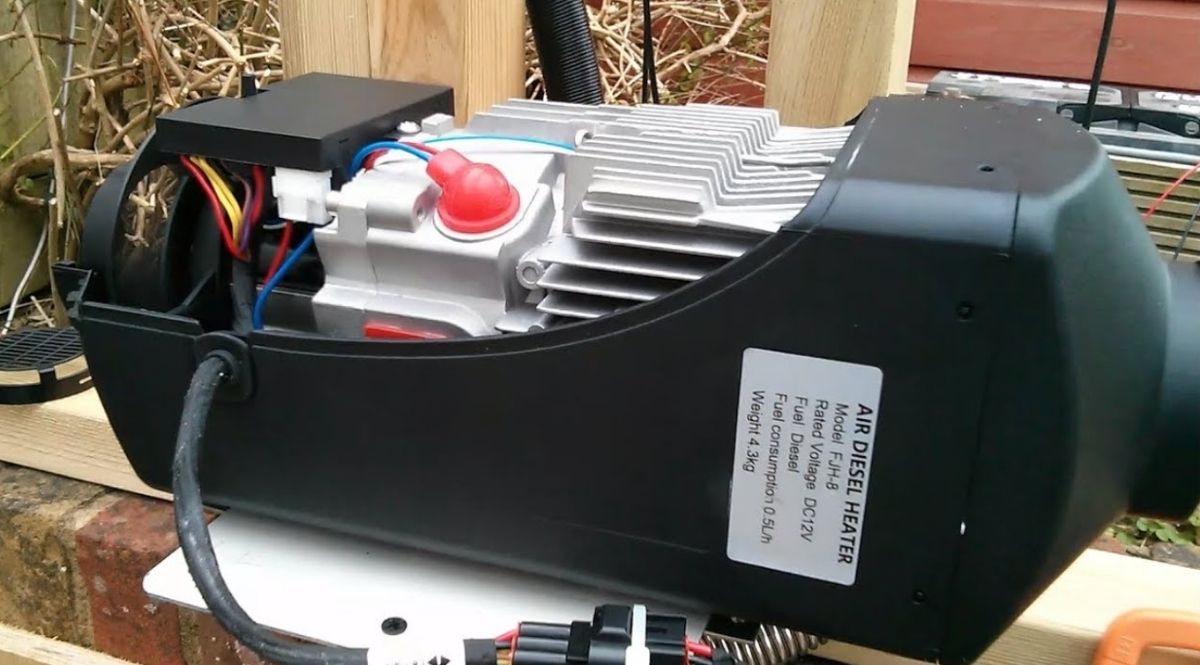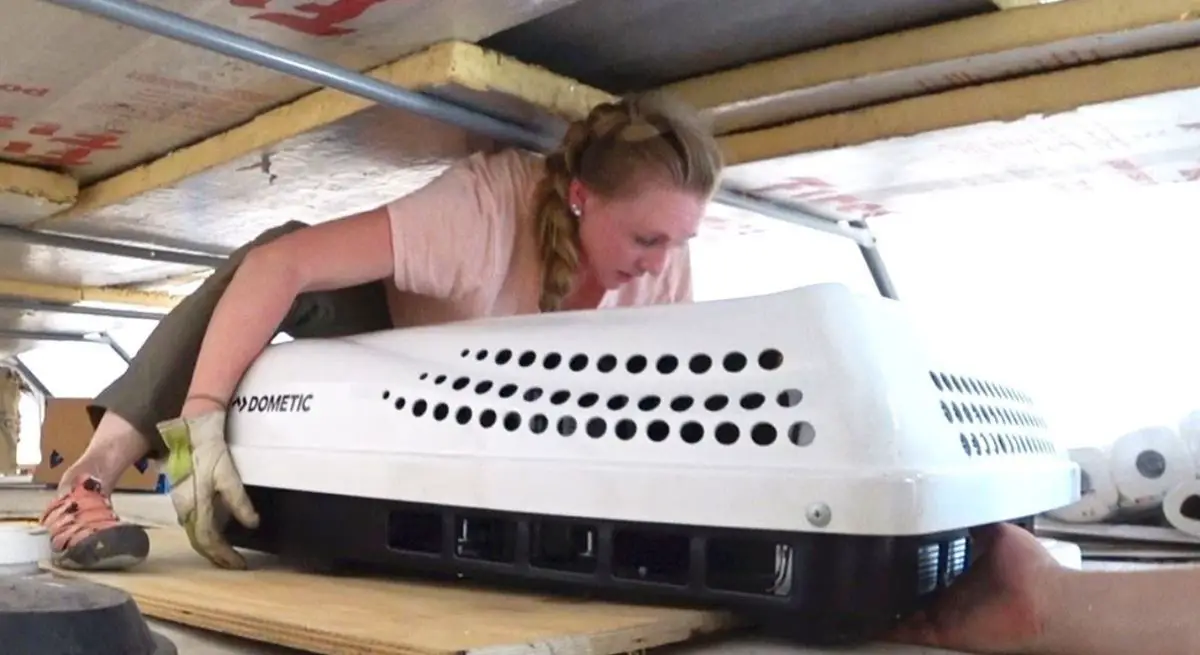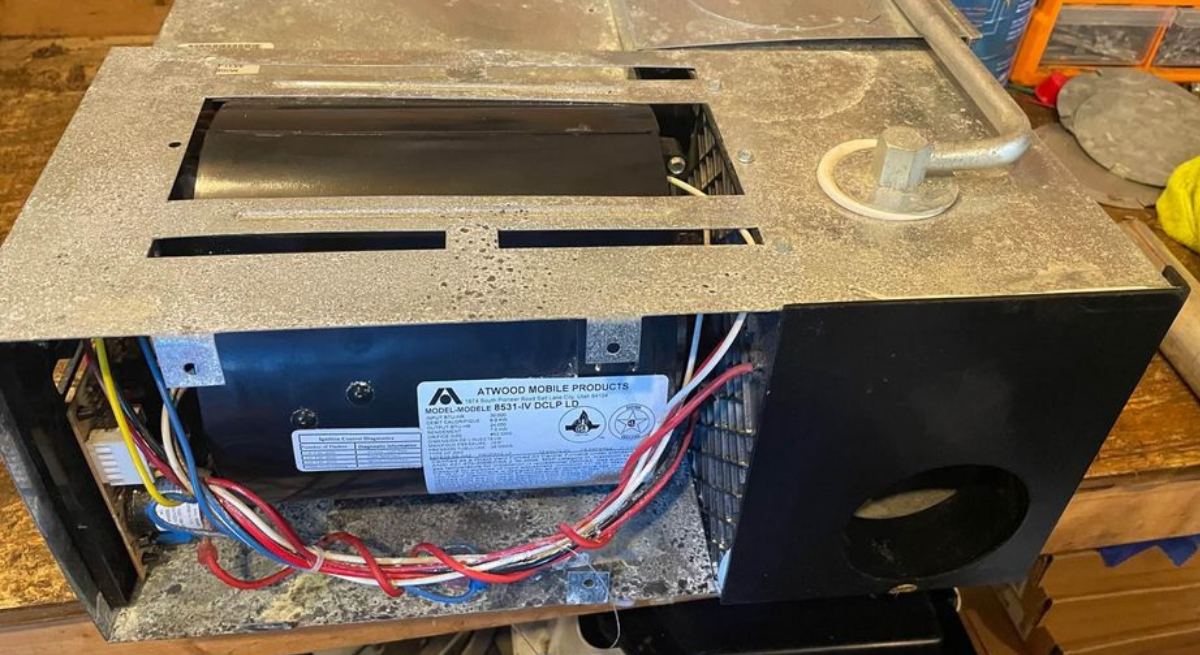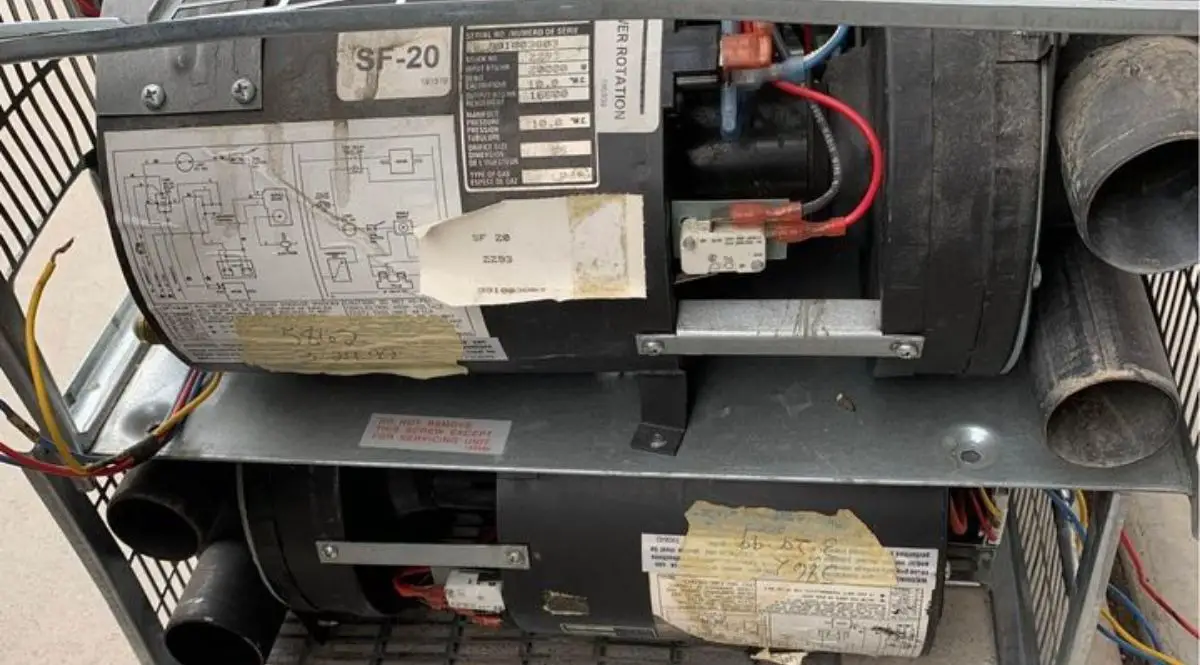Diesel air and instant hot water heaters work very well for boondock and off-grid camping, heat effectively and, like most diesel equipment, last longer, making them a good investment.
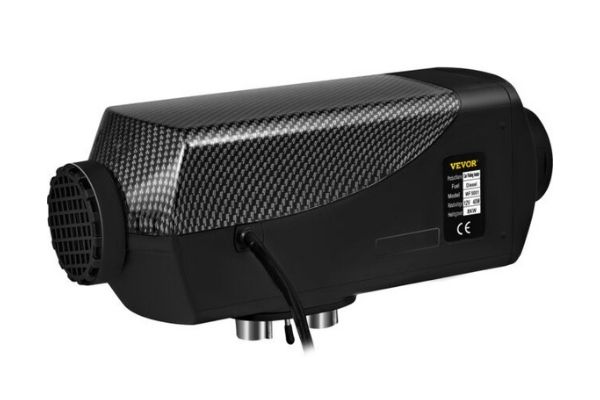
However, they are not “instant” in the same way that propane or electric tankless heaters are instant. Diesel heaters use hydronic heating, heating a liquid coolant and using a heat exchanger that transfers heat from the combustion chamber generated by the burning of diesel to the heat exchanger to the water.
Because diesel ignites by using pressure and propane ignites using combustion, the propane heater initially will produce heat more quickly, but that advantage is lost as the diesel burns. As well, most diesel “instant” heaters actually use a small (3 gallon) exchanger tank, while truly tankless systems use a heat exchanger that directly passes through or around the waterline to heat it.
In the same way that a 20-gallon hot water tank will heat more quickly, with the same heat source, than a 60-gallon one, tankless units will heat the water quicker because they are focused on heating very small quantities at a time, instantly. This, in part, determines liters-per-minute hot water capacity.
When comparing diesel air and hot water heaters to propane heaters, diesel units cost less to operate, cost more to purchase, and can use the diesel tank that the engine of the RV runs on. Diesel also generates more BTUs than propane (34% difference), making it more efficient at producing heat.
How Long Does It Take To Produce Heated Water & Hot Air?
Diesel air and hot water heater with a three-gallon exchanger tank will take seven to nine minutes to heat, while propane with a ten-gallon tank will heat the water in thirty minutes. Even when compensating by calculating a 3-gallon to 3-gallon tank, propane will take 9-11 minutes or roughly twenty-five to thirty percent longer.
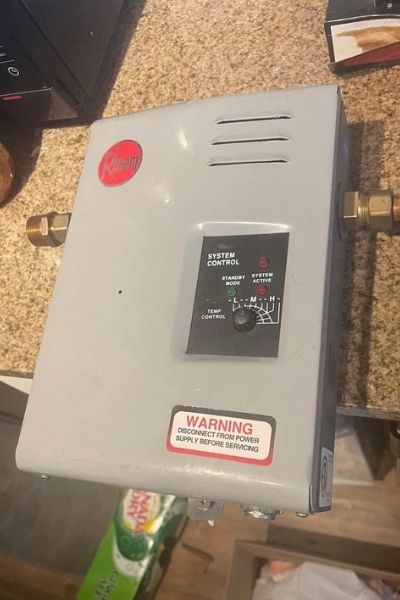
If the diesel system uses a minimal-sized coolant reservoir, the time to heat will be less, but the time that it takes to pressurize the diesel so that it ignites will remain the same—less than a minute. It still will produce heat more quickly than propane or electricity.
How Hot Does The Water & Heater Get?
Most heaters have a safety setting that prevents you from setting a temperature higher than 110-120F (40-45C). However, theoretically, the outlet temperature will depend on the BTUs that the heater produces. By comparison, in inexpensive tankless propane water heaters, the built-in settings limit both the heat and the flow rate, which generally are around 95-105 F and 1.0 liters (.25 gallon) per minute.
How Much Hot Water And Air Can They Produce At The Same Time?
Typical diesel air and hot water unit can produce hot water continuously at the rate of about 2.5l/minute (approx. ½ gallon) and simultaneous heat sufficient to heat the RV for which it is sized.
However, the flow rate and capacity to produce hot water depends on the pipe size, the capacity of the pressure pump, and the BTU output of the heater. The better units can produce variable flow rates, depending on your demand, from as low as 1.5 liters per minute for continuous flow to as much as five liters, but for a shorter time period.
Because the air heating system does not run through the water heat exchanger, the two operate at peak efficiency all the time. For instance, the Webasto Hybrid 5 produces 140 cubic meters of heated air at the same time that the water heater produces up to 8 liters per minute of hot water.
The size of the units determines the flow rate of air and water, and both can be adjusted through the controllers available for the units.
Do You Need A Water Pump Or City Sources For Water?
On most of the diesel units, you do not need a separate water pump or city water supply to operate. RVs have their own water pumps (except for older park models) and many of the new diesel water/air heaters also have a 12v pump provided, allowing you to pump hot water, along with a fan unit to distribute warm air.
One of the main advantages of diesel systems is that they allow campers to boondock, and use the integrated water and heat systems of the unit without the use of a pressurized city system or an electrical hookup. Compare diesel all-in-one systems to your normal RV water system.
Do You Need To Use Both Water And Hot Air At The Same Time?
The diesel air and water heaters do not require that you use both air and water at the same time. There are separate lines diverting heated air out of the exchangers and lines providing hot water. You can control whether the air unit is blowing warm air while you are producing hot water.
Similarly, you can call on the unit to produce hot water and heated air simultaneously. However, if you are not running the water supply, you still can use the air makeup units.
As a safety feature, there is a high heat override built into the hot water systems, in the same manner, that there is a pressure relief valve in the hot water tank of a house. Most of the controllers for better-quality combination units allow for multiple modes, including fan-only operation.
What Are The Downsides Of Having Hot Water And Air In One Unit?
There are a few drawbacks to having integrated hot water and air unit in one. They are:
- Price. A combination diesel air and hot water heater can be quite expensive, costing upward of $2,000, versus a propane water heater and tank costing $500-700.
- Altitude. As you travel higher into the mountains, diesel units are less effective at combustion, requiring more pressure to ignite. However, many models have a compensator that adjusts for changing elevations.
- Noise. At start-up, diesel units are a little noisy. There are muffler units that reduce the decibels, and most units, being rooftop, have the fan noise directed to the outside.
- Odor. On start-up, you occasionally will smell the unspent diesel as the unit heats so that the diesel can ignite.
- Size. There are compact models available, but for the best, highest output units, the size and weight are more than for tankless propane or electric systems.
- Adapting from conventional LNG fuels. Your trailer may have a furnace and hot water systems that are floor-mounted, under counters, and vented outside. Adapting from these units to rooftop all-in-one units requires considerable effort.
- Flow rate is dependent on size. Like any furnace or hot water system, the size of the unit, its heater output capacity, the flow rate of water lines, the effectiveness of water and pressure pumps, and the speed and size of the fan for air movement determine your air and water flow rate.
Could These Heaters Be The Future For Camper Vans?
These heaters have a limited scope, higher cost, and other drawbacks that make them unlikely to overtake conventional LNG (propane) as the most popular choice for campers, but they do offer advantages for boondockers and off-the-grid campers. Their advantages make them well suited for Class A, B, and C motorhomes, but less suited to tow-behind RVs.
Since the majority of campers do not intend to boondock, demand for the high price point systems is limited.
The safety of fuel storage is a concern, as is the availability of that fuel. Diesel does not ignite under normal air pressure, although kerosene may, once ambient temperatures reach 36-45C. Kerosene may be used in diesel units and both cost less per unit to use than propane, providing higher BTUs as well.
There are storage and transporting regulations regarding propane that many people are unaware of, but which can pose hazards. Diesel, however, has few regulations, allowing people to transport diesel in containers up to 1000 liters.
If you are boondocking and require propane refills, you may have difficulty finding a supplier. On the other hand, if you have a diesel RV, you simply can use the fuel from your vehicle tank in a diesel heater.
Buddy heaters and diesel or propane space heaters are not viable options for off-the-grid RVing, because of their risks.
These advantages make diesel heaters attractive for many RVers.

